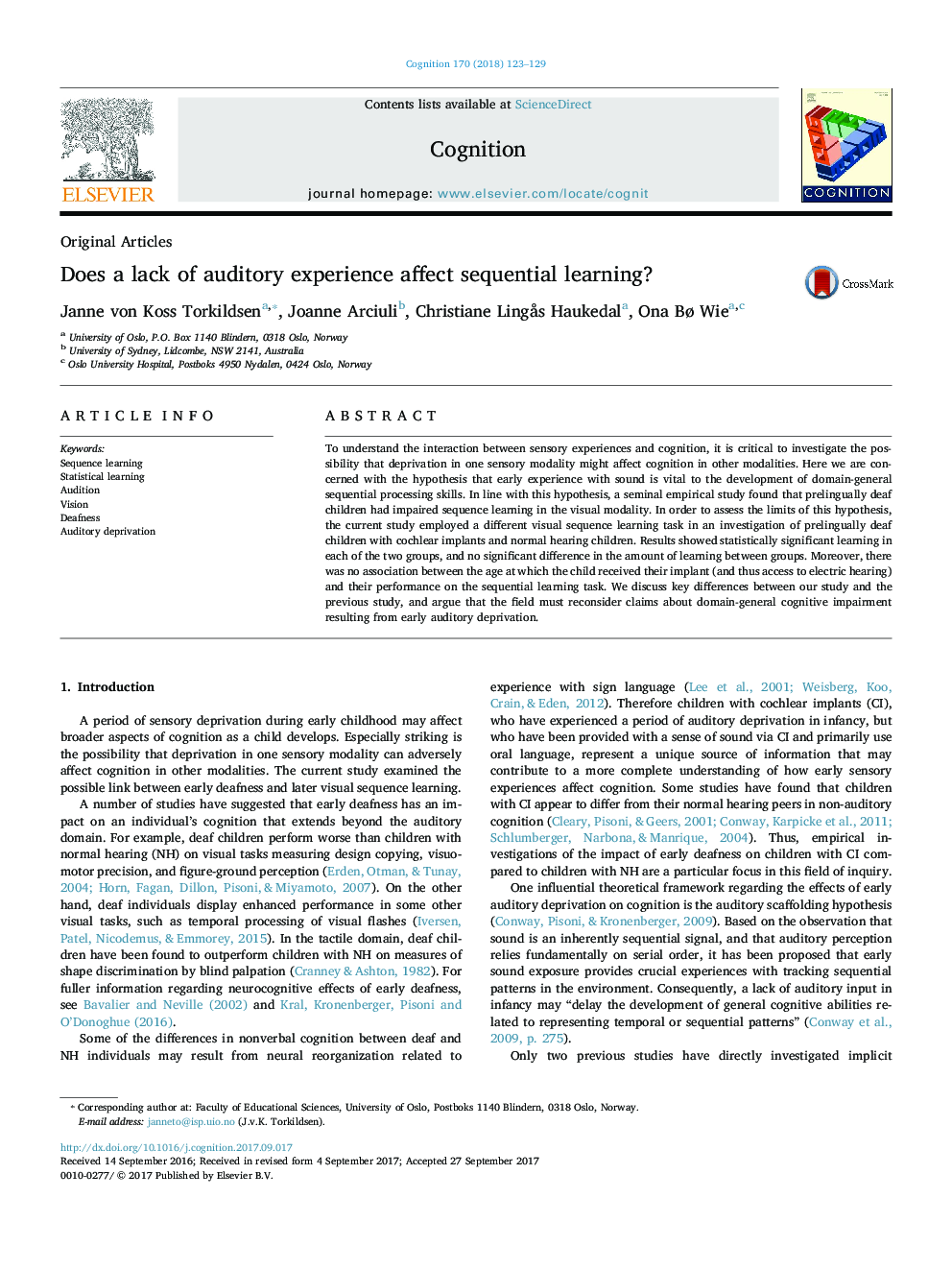| Article ID | Journal | Published Year | Pages | File Type |
|---|---|---|---|---|
| 5041405 | Cognition | 2018 | 7 Pages |
â¢It has been proposed that deafness leads to a general sequence learning deficit.â¢In the present study prelingually deaf children showed intact sequence learning.â¢Age of cochlear implantation was not related to sequence learning skills.
To understand the interaction between sensory experiences and cognition, it is critical to investigate the possibility that deprivation in one sensory modality might affect cognition in other modalities. Here we are concerned with the hypothesis that early experience with sound is vital to the development of domain-general sequential processing skills. In line with this hypothesis, a seminal empirical study found that prelingually deaf children had impaired sequence learning in the visual modality. In order to assess the limits of this hypothesis, the current study employed a different visual sequence learning task in an investigation of prelingually deaf children with cochlear implants and normal hearing children. Results showed statistically significant learning in each of the two groups, and no significant difference in the amount of learning between groups. Moreover, there was no association between the age at which the child received their implant (and thus access to electric hearing) and their performance on the sequential learning task. We discuss key differences between our study and the previous study, and argue that the field must reconsider claims about domain-general cognitive impairment resulting from early auditory deprivation.
